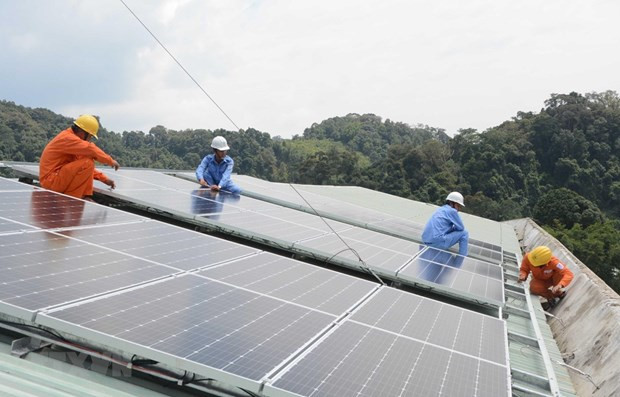Hanoi (VNA) – The Vietnam Business Forum will roll out next week thesecond edition of the Made in Vietnam Energy Plan (MVEP 2.0), a business casefor the primary use of Vietnam’s domestic resources to stimulate investment inclean, secure and affordable energy generation.
The MVEP 2.0,based on the groundbreaking 2016 edition – MVEP 1.0, will be released onFebruary 27. The report has been developed during a time of fast-paced transitiontowards renewable energy and increasing use of natural gas in electricityproduction in Vietnam.
The reportrecommends Vietnam to prioritise renewable energy in national power planning;increase use of natural gas as the current best-fit baseload for renewableenergy; construct a regulatory and permitting environment that attracts privatesector and smaller scaleoff-grid investment in clean energy generation and energy efficiency; invest ingrid infrastructure to improve stability and capacity; and halt any newapprovals for coal.
Six key policyactions are proposed in the report to help Vietnam move toward a morefinancially, socially, and environmentally sustainable energy future. Theyinclude engaging energy specialists from the private sector in producingVietnam’s Power Development Plan VIII with a strong prioritisation oninvestment in domestic renewable energy, natural gas, battery storageand energy efficiency.
The reportalso suggests the implementation of regulatory frameworks and incentivesthat encourage investment in renewable energies, such as rooftop solar, batterystorage, floating solar, and offshore wind projects, with simplified approvalprocesses, while still maintaining safe power systems.
According tothe report, Vietnam should standardise the renewable energy Power PurchaseAgreement (PPA) and Sleeved Direct Power Purchase Agreement (DPPA) as internationallybankable agreements; publish a Roadmap to Retail Electricity Tariffs to 2025 thatdepicts the move toward market-based pricing, revising the number of PeakTariff hours, and consider a differential Retail Tariff in different powerregions and for disadvantaged households.
Additionally,the report recommends the country to assess the urgent demands on thegrid transmission system and the least-cost means of developing gridinfrastructure to support increased renewable energy and increased distributedenergy generation; and evaluate thecause and solutions for Vietnam’s extremely high and growing energy intensityas compared to regional neighbours with similar and higher GDP per capita andprepare a public education campaign on reducing energy waste./.





























